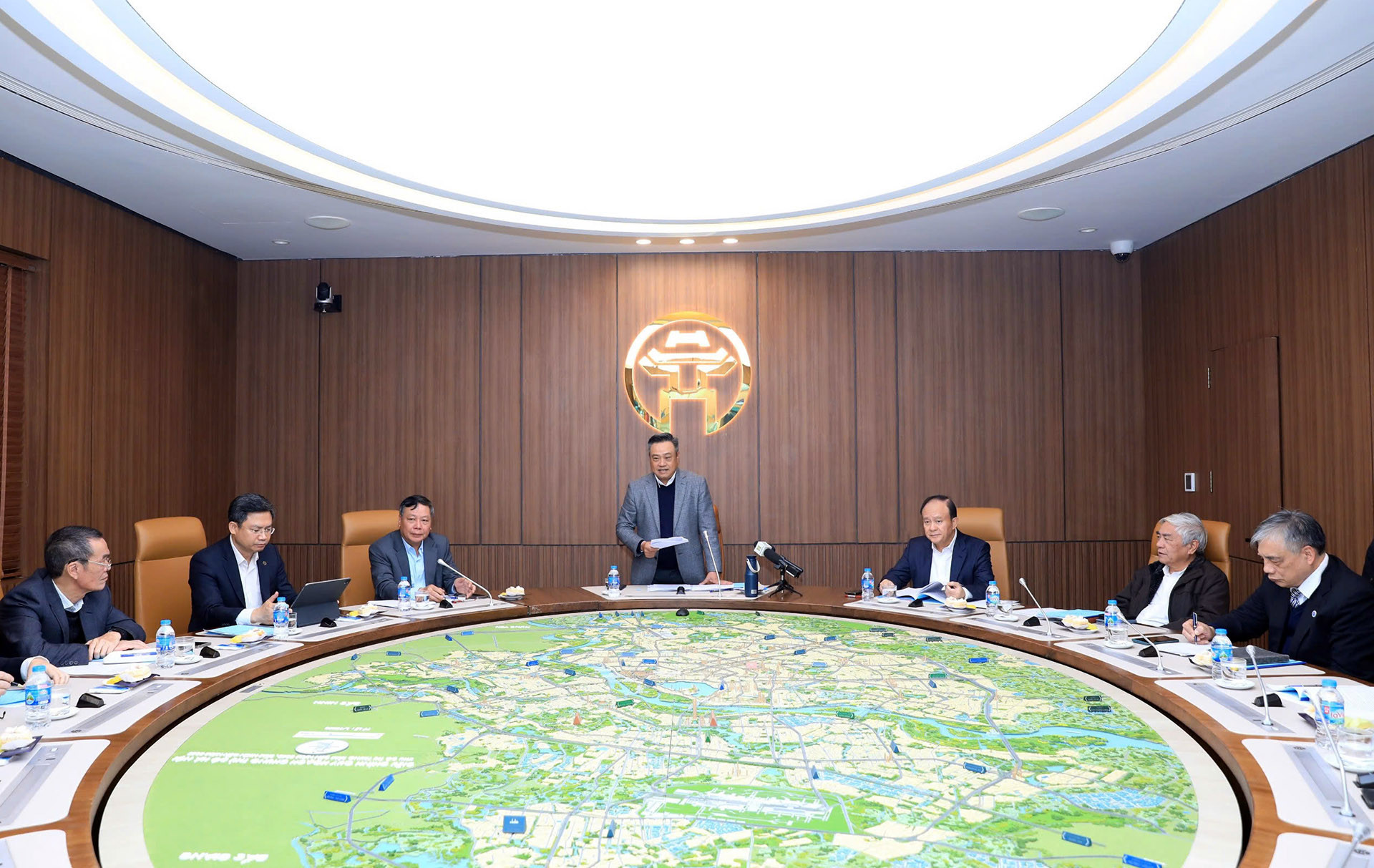
Chairman of the Hanoi People’s Committee Tran Sy Thanh has announced the capital’s ambitious vision to become a top science and technology hub in Asia by 2045, driving the growth of the knowledge economy and innovation in the region.
On February 26, Chairman Tran Sy Thanh chaired a meeting with scientists to implement Resolution 57 of the Politburo on breakthroughs in science, technology, innovation, and digital transformation, as well as Government Resolution 03 on the development of science, technology, innovation, and high-quality human resources to boost Hanoi’s economic growth.
Defining key breakthroughs
At the meeting, Dr. Nguyen Quan, former Minister of Science and Technology, emphasized the need for Hanoi to set clear objectives and define strategic breakthroughs.
He suggested that the city focus on core scientific and technological products, particularly in fields such as microchips and artificial intelligence.
He also proposed piloting innovative regulatory frameworks in selected institutions, which could later be expanded citywide if successful.
In particular, he recommended that Hanoi leverage the revised Capital Law to implement controlled experimental models.
Assoc. Prof. Dr. Huynh Quyet Thang, President of Hanoi University of Science and Technology, highlighted the importance of high-quality human resources in ensuring sustainable double-digit economic growth.
He stressed that creativity and entrepreneurship, especially student-driven innovation, play a crucial role in Hanoi’s technological advancement.
“Hanoi has a major advantage with numerous universities, colleges, and research institutes. This intellectual capital is invaluable for fostering innovation and development,” Thang noted.
He proposed that Hanoi take the lead in venture capital investment, supporting startups by creating a favorable business environment and establishing funds to promote innovation.
Nguyen Van Khoa, CEO of FPT Corporation, described Resolution 57 as a technological revolution and urged Hanoi to embrace its role as a pioneer.
"Leading a revolution is never easy - it comes with risks and challenges - but the potential rewards are immense. Hanoi must maintain a determined mindset," Khoa stated.
He also stressed the importance of supporting private science and technology enterprises, assigning them strategic problem-solving tasks based on real-world needs, and creating policies for investment and tax incentives.
Strengthening collaboration with scientists
Nguyen Van Phong, Standing Deputy Secretary of the Hanoi Party Committee, reiterated that the city’s 17th Party Congress had identified science, technology, and innovation as one of three strategic breakthroughs for sustainable development from 2020 to 2025, with a vision toward 2030 and 2045.
Since the issuance of Resolution 57 by the Politburo and Resolution 03 by the Government, Hanoi has proactively implemented measures to promote scientific and technological progress, innovation, and digital transformation.
Phong emphasized that Hanoi possesses unique advantages unmatched by any other locality, including a vast network of scientists, research institutes, and universities. This intellectual community represents a priceless resource for the city’s development.
"The introduction of Resolution 57 is not just an opportunity but also a necessary condition for Hanoi to realize its ambition of becoming a regional leader in science, technology, and innovation. The city will continue fostering close ties with the scientific community and will soon implement a Capital Innovation Network model," Phong stated.
A roadmap for technological leadership
Concluding the meeting, Chairman Tran Sy Thanh affirmed Hanoi’s commitment to listening to experts and scientists, integrating their innovative ideas, and developing practical solutions to achieve its long-term vision.
Based on expert recommendations, Hanoi will refine its action plan and submit it to the Standing Committee of the City Party Committee for approval.
Thanh also proposed forming a dedicated team of experts to provide guidance on implementing key policies. The city will evaluate the best model to support this initiative.
Hanoi has set specific milestones to achieve its vision:
By 2030, the city aims to become a leading center for science, technology, and innovation in Southeast Asia, serving as a powerful driver of economic and social development in both the capital and the nation.
By 2045, Hanoi aspires to be one of Asia’s top science and technology hubs, leading the region in knowledge-based economic development and innovation. The city's innovation ecosystem will reach international standards, becoming a key force in economic growth and global competitiveness.
Quang Phong